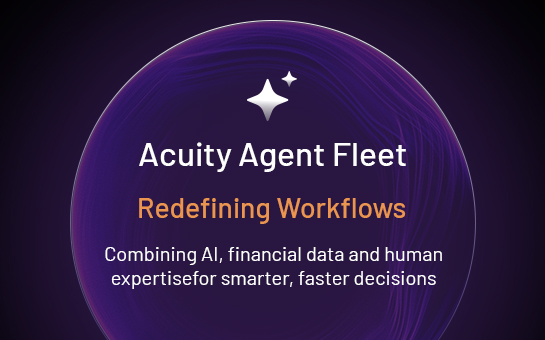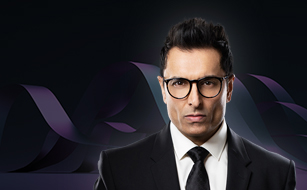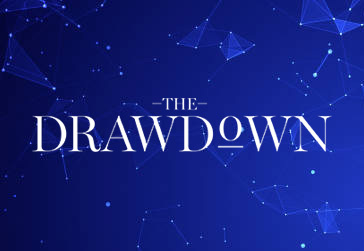An Opportunity Forged on Three Continents
By Chris Hughes , The Financial Times
Ten years ago, Rishi Khosla was just another trainee at ABN Amro Hoare Govett, working through the night on presentations for its bankers to use in pitches to potential clients.
Today, Mr. Khosla is among the pioneers who have persuaded Wall Street to outsource this and other intellectual work to India. His company, Copal Partners, oversees 400 analysts in Delhi, and revenues are growing at 10 per cent a month. Established with just £40,000 four years ago, it is set to float next year with a valuation of up to $200m. And Mr. Khosla is only 30 years old.
His company’s rapid ascent shows how successful entrepreneurship relies as much on selecting the right opportunity – in this case the growth of high-value offshoring work – as on hard graft and determination.
Mr. Khosla, a British citizen, came from an entrepreneurial background; his father had set up an engineering business in the 1980s. But despite being a high achiever – he took his first A-level aged 13 and finished a Masters in Accounting and Finance at the London School of Economics when he was 20 – it was only after spending time in a corporate environment that he gained the confidence to set up his own company.
“I knew I loved business. I knew I wanted to make money,” he says of his childhood.
In 1998, two years after joining ABN, Mr. Khosla was headhunted by GE Capital’s business development unit in London. The experience of pitching ideas to Jack Welch boosted his confidence – so much so that, two years later, he felt able to take a job running a venture capital portfolio for Lakshmi Mittal, the steel tycoon – even though he had not made investment decisions on his own before.
The move from GE, with its entire infrastructure, to working solo for Mittal, then little known outside Asia, was a bigger leap of faith than setting up his own company, Mr. Khosla says.
After September 11, 2001, the Mittal family lost its appetite for new investments and Mr. Khosla moved to managing some of the portfolio companies instead. In one, he generated $7m of sales in nine months. It was then, in 2002 and aged only 26, that he found he had sufficient belief in his abilities to start his own company.
Mr. Khosla had nursed a vague idea for Copal for several years. In the late 1990s, Indian outsourcing was associated mainly with IT issues such as dealing with the millennium bug. But Mr. Khosla believed that India’s growing population of graduates could be a valuable asset for western financial firms. His insight was to see that research conducted by graduates in the mergers and acquisition departments of investment banks could be done for a fraction of the cost, and at the same or higher quality.
The first clients came without too much effort. Mr. Khosla roped in an old LSE classmate and ex-McKinsey consultant, Joel Perlman, to help him bring investment banks on board.
They signed up their first customer in 2003, and Mr. Perlman took a 25 per cent stake in the business. Sushil Wadhwani, former member of the Bank of England’s monetary policy committee and a Khosla family friend, is also a shareholder.
But there was a snag. Copal struggled to hire more than five trainee analysts. So Mr. Khosla and Mr. Perlman had to pick up the slack. “Initially we would do a lot of the work ourselves,” Mr. Khosla says. “It was like the early days of our careers – walking home at 7am, having a shower and walking back to the office. Getting the initial set of people was probably the hardest thing. When you’re hiring your first employee, everyone is skeptical – especially when you don’t have showcase offices.”
The experience taught Mr. Khosla a valuable lesson. “If you take the view that something is another person’s job, you will never make it in a start-up. You have to be able to be the janitor,” he says.
Recruitment was a headache for the first two years. Almost half of the work that was coming in had to be turned away because it could not be carried out to the required quality. Meanwhile initial interest from some investment banks did not catch on elsewhere in the sector.
Both founders often talked about packing it in, even as recently as last year. On one occasion, Mr. Khosla had to be talked out of giving up by his father and wife.
“We were trying to create the industry and it just wasn’t getting there. The company was making $200,000 in revenue a year and I had been used to earning much more than that by myself,” he says.
The turning point came midway through last year, when Copal’s stars suddenly came into alignment. The company had already successfully experimented with recruiting graduate interns from the top UK universities, flying them out to Delhi with the offer of training and free accommodation.
At the same time, Mr. Khosla brought in five professional managers. This made for a top-heavy business, but created new momentum just as outsourcing to India was gaining credibility on Wall Street.
Almost overnight, Copal found itself with more orders and greater capacity for work. When the interns left, they would often end up working for potential clients, helping to establish Copal’s reputation.
Since the middle of 2005, Copal’s revenues have been growing by 10 per cent a month. The goal now, says Mr. Khosla, is to create a cohesive company culture – a challenge in a fast-growing organisation. He says he has become a less abrasive manager over time, recognising that sometimes “it is necessary to be nice to people if they are to produce good results”.
But Mr. Khosla sets a daunting pace. He spends 200 days a year traveling. Since the birth of his daughter last year, he has set aside one hour each evening to be with her and his wife. During this hour, he will turn off his BlackBerry but not his mobile.
“Holiday for me means there has to be broadband in the room and I’ll work four hours a day instead of all day,” he says.
Mr. Khosla does have a forgiving side. He is critical of the British intolerance of entrepreneurial failure, and helped set up The Indus Entrepreneurs (TIE), a networking group for entrepreneurs. “In the US, failing in business is seen as positive. You can go straight back into your next venture, and you’ll get funding again.”
If Copal is preparing for an initial public offering next year, is Mr. Khosla thinking of moving on to a new venture? After all, the business does not need capital. He is coy in his response.
“I know that one day I will return to venture capital, but with my own money. But to me that’s almost retiring compared with the work you have to do operating,” he says. “And right now, I love operating.”





